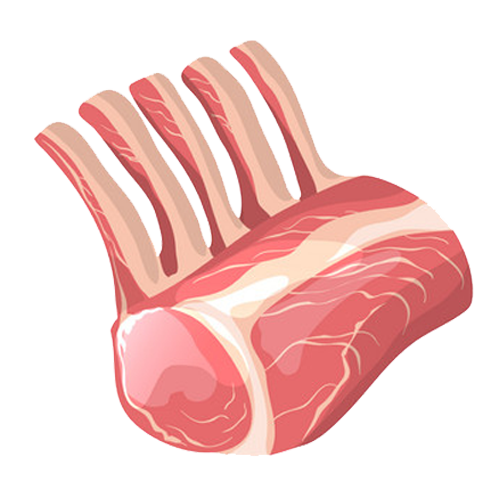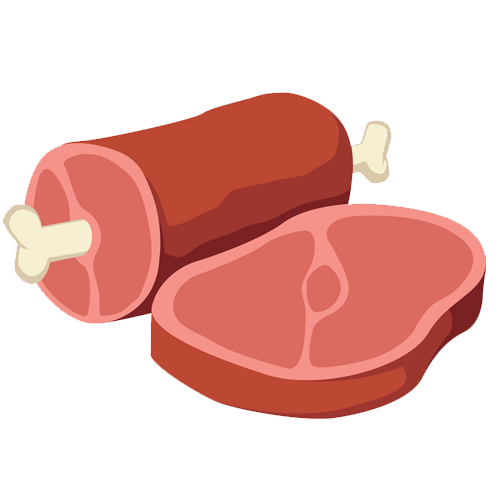Meat, Fish, & Eggs: The YES List
| Anchovies | Chicken | Herring |
| Salmon | Turkey | Sardines |
| Eggs |
Getting enough protein is important during the Anti-Fungal Diet. Protein enables your body to grow and repair cells, and it also supports your immune system. Try to eat fresh cuts of meat from your local butcher or supermarket as much as possible, and buy organic, free-range, and hormone-free meats as much as you are able. You should completely avoid processed meats as these are generally full of sugar, nitrates, and sulfates.
Eggs are a great addition to salads, and you can make some delicious vegetable omelets by mixing them with the vegetables, herbs and, seasonings in this section. Eggs are also a nutritional powerhouse and you should feel comfortable eating several per day if you choose.
There is an art to getting the most nutritional value from your eggs. Eating the egg yolks raw will allow you to enjoy all the enzymes, omega-3 fatty acids and more that they contain. However, egg whites should always be cooked because this neutralizes the anti-nutrients like avidin and the trypsin inhibitors that they contain. Avidin prevents you from absorbing biotin (an important B vitamin) from your food, while trypsin inhibitors prevent your body from absorbing protein as efficiently as it should. To get the most nutrition from your eggs, ideally, you should eat the yolks raw and cook the egg whites. To achieve this, some people separate them out and use the egg yolks in smoothies and the egg whites for omelets or baking. Alternatively, you can just lightly poach or fry your eggs. When properly done, the poaching process cooks the whites and leaves the yolks runny. The best of both worlds!
In this stage of the diet, we have only included fish that are very low in toxins. Large fish like albacore tuna and swordfish accumulate mercury and other heavy metals that can weaken your immune system. This is simply because they take longer to mature in the oceans and thus have much greater exposure to the environmental pollutants that we have created. Unfortunately, these pollutants now permeate the majority of our seas and oceans. Smaller fish like anchovies, herring, and sardines have a much shorter life span and much less time to accumulate these toxins. Wild salmon is another good option -it is recognized by the EPA and FDA as a low-mercury fish that is safe to eat in reasonable quantities.
Meat, Fish, & Eggs: The MAYBE List

Beef

Lamb

Venison
There is some debate as to whether red meats should be eaten while on an anti-fungal diet. This is because they are known to produce higher levels of digestive byproducts like ammonia in your gut. Ammonia increases the pH level of your intestines, creating the kind of environment where the yeast cells can switch to their more virulent, fungal form. There is some truth to this theory, but your body also needs varied sources of protein. Others note there are higher rates of various cancers linked to those who consume greater amounts of red meat. Of course, these studies don’t typically use free-range, grass-fed varieties, which makes an enormous difference to the nutritional content of the meat.
Our suggestion is to focus on grass-fed, hormone-free red meats, while also eating other protein sources like white meats, eggs, and fish. Many people will do very well with small amounts of red meat during this phase, whilst still focusing on eating lots of vegetables. Take special care to avoid barbecued and smoked red meats as well, as the processes of barbecuing and smoking produce two different classes of carcinogens in the meat!
Your best options for cooking red meats are to bake, lightly grill, stew, or lightly fry on lower heat in a skillet. This will minimize the development of carcinogenic byproducts or other damaging, oxidizing byproducts called A G E’s (Advanced Glycation End-products) which oxidize and damage the integrity of your cells.
Pay attention to your symptoms and how your body responds to digesting red meat. If you feel worse, you may need more time before your digestive system is sufficiently rebalanced to process is efficient. That’s absolutely OK, and instead, you can focus on a wide range of poultry, fish, and eggs as your primary protein sources.
Meat, Fish, & Eggs: The NO List
| All Large Fish | Pork | Salmon(farmed) |
| Shellfish | Smoked Meats | Swordfish |
| Processed Meats | Smoked Fish | Tuna |
Processed meats tend to be full of sugar, preservatives, and other additives that can negatively affect your digestion and immune system. The same goes for smoked, cured or vacuum-packed meats of any kind. Stick to fresh cuts from your local butcher or supermarket, without any additives.
There is one meat that you should avoid at all times, even if you buy it fresh from the butcher. Pork is regularly contaminated with harmful bacteria and is more apt to have latent worm infections, far more so than other meats. In fact, a 2012 study by Consumer Reports found that 70% of raw pork samples contained Yersinia Enterocolitica, a dangerous bacteria that can cause gastrointestinal problems like diarrhea and vomiting. Many of the samples also contained salmonella, another cause of intestinal illness that could be particularly troublesome for Fungus sufferers. If you’re on an anti-fungal diet, you should cut pork out of your diet entirely. For some individuals, you may wish to avoid it altogether in your diet, due to these issues.
As already discussed, it is particularly important to cut large fish like albacore tuna and swordfish out of your diet. The reason is that these large fish have a great deal of time to accumulate heavy metals and toxins like mercury, which then get passed on to us when we eat them. Give your immune system a break and eat only small fish like sardines or anchovies, with the occasional piece of wild salmon.
The same goes for shellfish, scavengers which tend to have high levels of heavy metals and other toxins. There is nothing inherently unhealthy about shellfish, and in fact, they provide useful amounts of some micronutrients like zinc. However, they are particularly prone to consuming and retaining whatever noxious substances are in their immediate environment. Shellfish should be avoided at this stage, and you might consider limiting your consumption in the long term too.